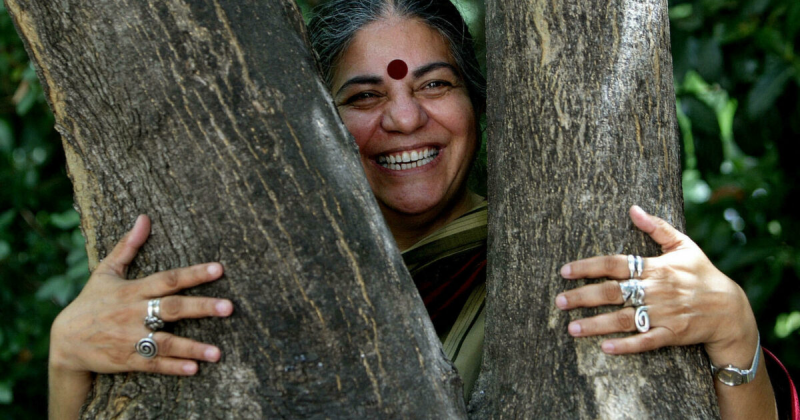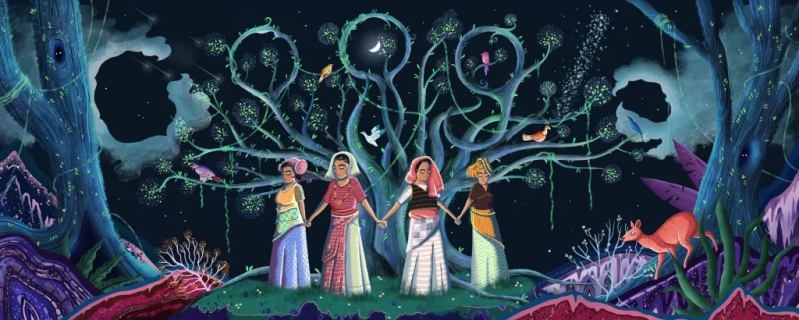
Ecofeminism is a philosophical and activist movement that connects the oppression of women with the exploitation of nature. It argues that the same social systems, especially patriarchy and capitalism, that dominate and marginalize women also exploit and degrade the environment.
Key Ideas
1. Link between women and nature
Ecofeminists observe that women often associated with nurturing, reproduction, and the earth itself while men are associated with control, domination, and exploitation.
2. Critique of patriarchy
They argue that patriarchal values such as hierarchy, control, and power, have led to both gender inequality and environmental destruction.
3. Interconnected oppressions
They don't see sexism, racism, classism, and ecological harm as separate issues, but as interconnected systems of oppression.
4. Holistic perspective
Instead of focusing on human progress, ecofeminism emphasizes harmony, care, sustainability, and respect for all.
5. Action and activism
These movements often involve women leading grassroots environmental struggles, especially in communities most affected by ecological harm.
What Purpose Does it Serve
Ecofeminism serves several purposes, both theoretical and practical. This includes raising awareness of connections between women and nature, social justice and environmental justice, and destruction and harmony. It challenges the mindset behind patriarchy and encourages care and sustainability over domination and profit.
Real-World Examples

Source: Earth.org
One powerful example comes from the Chipko Movement in India in the 1970s. Women in rural villages hugged trees to prevent loggers from cutting them down. They weren't just protecting trees, but they were also defending their water sources, families, and community survival.
Another leading voice is Dr. Vandana Shiva, an Indian scholar and ecofeminist activist who has spent decades fighting against industrial agriculture, genetically modified seeds, and corporate control of food systems. She argues that the same forces exploiting women are also destroying biodiversity and farmers' rights. Thorough her organization, Navdanya, she has empowered thousands of women farmers in India to practice organic farming, save native seeds, and protect ecological balance. Her work shows how ecofeminism is not just theory but a practical path toward food security, climate resilience, and community empowerment.

Source: In These Times
Role of Women in Climate Leadership
Women play a vital role in climate leadership by bringing unique perspectives rooted in care, community, and sustainability. From grassroots movements like Wangari Maathai's Green Belt Movement in Kenya to policymaking at national and global levels, women have been at the forefront of advancing climate justice. Their leadership not only strengthens environmental protection but also ensures that climate action is inclusive, addressing the needs of vulnerable and marginalized groups while promoting long-term resilience for both people and the planet.
Studies show that when women participate in decision-making, environmental policies are more ambitious and effective, prioritizing renewable energy, conservation and well-being. Women challenge the systems that oppress them and model solutions rooted in care for future generations.
Final Thoughts
Ecofeminism leaders like Vandana Shiva remind us that women's voices are not to be dismissed and are essential for creating just and sustainable solutions to the climate crisis. It asks us to see the connection between gender justice, social justice, and environmental justice and to work toward a future where both people and the planet can thrive.

Source: Rock & Art
Add comment
Comments